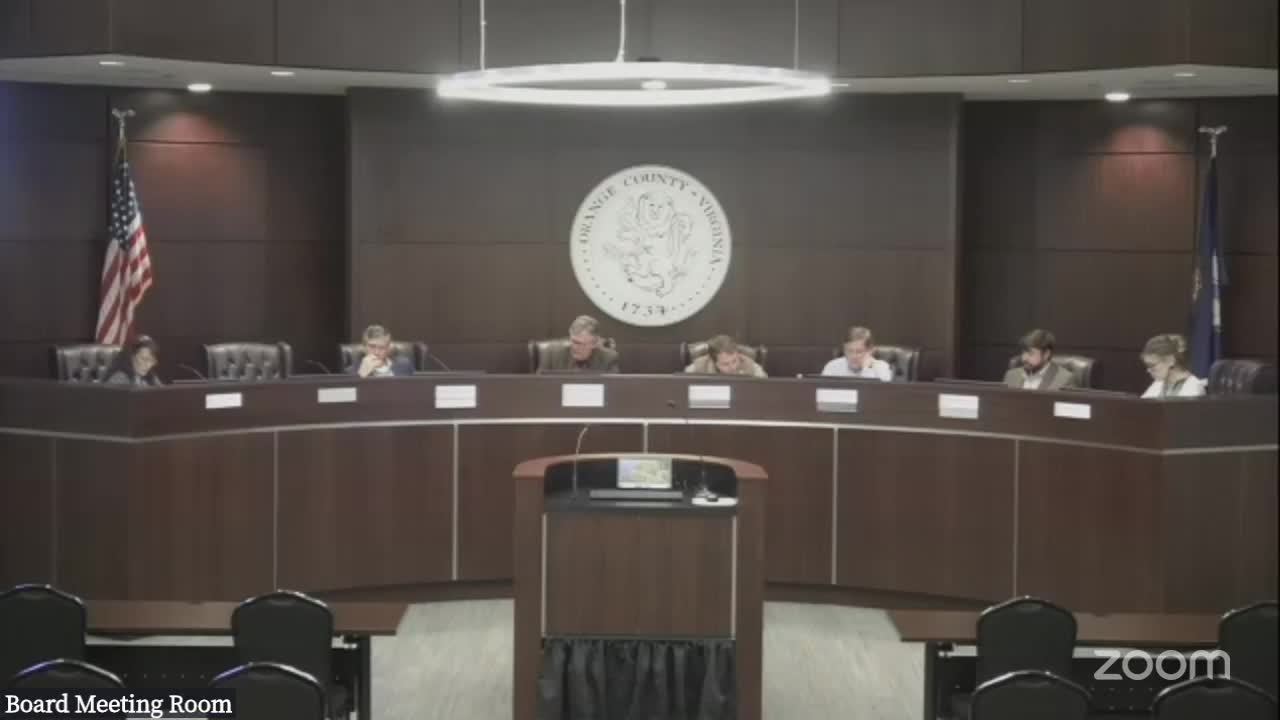Planning commission reviews zoning-ordinance rewrite work plan and project updates; committee deadlines set
Get AI-powered insights, summaries, and transcripts
Subscribe
Summary
Commissioners reviewed status updates on current planning projects and debated whether to create a new rural service district or revise existing R-1/C-1 districts; staff and committees were given deadlines to submit draft language for reviewer comments.
The Orange County Planning Commission used its organizational meeting to check progress on a zoning-ordinance rewrite and to hear updates on ongoing planning projects, with staff and commissioners agreeing on a schedule for committee drafts and further review.
Commission staff member Josh briefed the commission on multiple active matters, including a rezoning application (23-04) that was submitted over a year ago but placed on hold while a separate Section 14 map amendment moved forward. Josh told the commission that the applicant had asked to delay, and that “they had not indicated to me that we're gonna pick it back up,” although one commissioner later reported the applicant has continued discussions with staff and plans to return the proposal in the future.
The commission discussed several pending applications and planning items: Wilderness Shores (still at ARC), Unionville Brewing (ARC comments received mid-December; expected to take longer), a fiber-utility hub and a pending special-use-permit (SUP) application that staff expects could come before the commission in February.
The bulk of the meeting’s policy discussion centered on draft text for a proposed “rural service” or “rural residential” district as part of the zoning update. Committee members reported differing approaches: some recommended adapting existing zoning districts — R-1 (residential) and C-1 (neighborhood commercial) — rather than creating an entirely new district; others flagged that the purpose for a new district would be to regularize existing nonconforming uses (for example, small gas stations or neighborhood businesses now operating under SUPs in agricultural zones). The commission discussed whether to (a) create a new district and rezone properties now as part of the update, or (b) insert text options into the ordinance and rezone properties only when an owner sought change.
Josh explained the implementation constraints: “It would have to be rezoned,” he said, describing the limits of an ordinance change alone. He added that the SUP process and the zoning map are separate actions and that the commission could choose to rezone properties as part of the update or wait for property owners to apply for rezoning later.
Committee process and schedule were underscored repeatedly: committee drafts should be sent to reviewers by Jan. 16, reviewers will return comments, and unresolved comments will be discussed at the Feb. 6 meeting. The commission chair told members the committee “owns the document,” and urged them to get issues on paper for reviewers to evaluate.
Why it matters: The commission’s decisions about whether to create a new rural service district or to adjust existing districts will affect the regulatory status of small, existing businesses in agricultural or rural areas and influence whether property owners must seek rezoning or SUPs to secure longer-term development rights.
Other practical updates included a developer’s pause on a proposed Lands-in project after county reviewers told the applicant that proposed densities would require a community wastewater system and community water system — a cost that the developer said made the plan infeasible and prompted exploration of alternate approaches. Staff and commissioners said they would try to avoid duplicative drafts from consultants and requested more visibility on draft deliverables so the commission can comment before final documents are issued.
The commission closed the discussion by affirming the January and February deadlines for drafts and review and by asking staff and committee chairs to coordinate with applicants and consultants to clarify goals for any new district language.
Planned next steps: committee members to submit drafts to reviewers by Jan. 16; the commission to review comments and resolve outstanding issues at its Feb. 6 meeting; staff to coordinate better visibility on consultant drafts.
